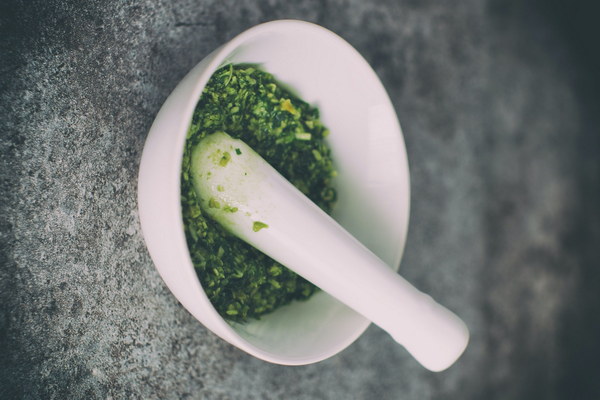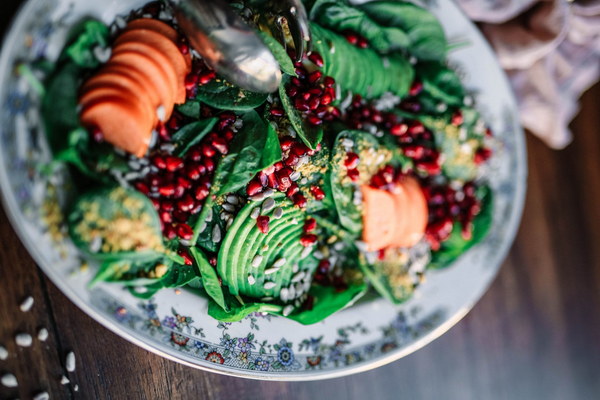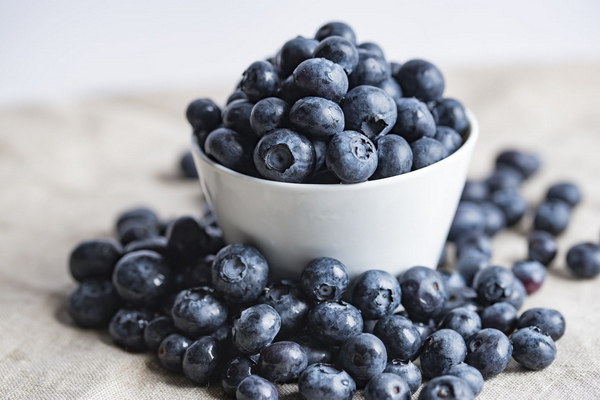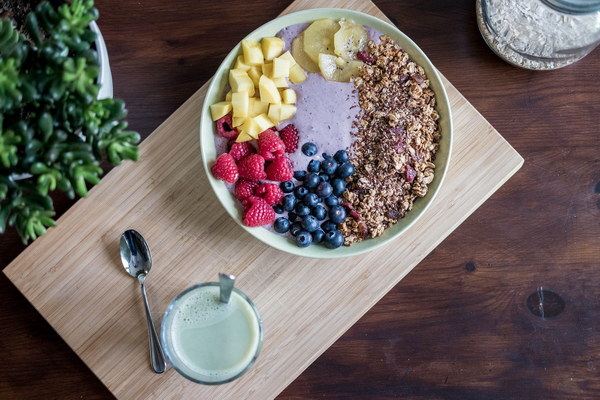Nourishing the Middle and Strengthening the Spleen A Guide to Traditional Chinese Dietary Remedies
In Traditional Chinese Medicine (TCM), the concept of Wen Zhong Jian Pi or Nourishing the Middle and Strengthening the Spleen is a fundamental principle for maintaining health and preventing illness. This concept emphasizes the importance of balancing the middle burner, which is the central part of the body responsible for digestion and nutrient absorption, and strengthening the spleen, which plays a crucial role in transforming food into energy. Here's a comprehensive guide on how to incorporate dietary remedies into your daily routine to achieve these goals.
Understanding Wen Zhong Jian Pi
The middle burner, also known as the zhong jiao, is located between the upper and lower jiao, which correspond to the chest and abdomen, respectively. It is the central energy center where the transformation and transportation of nutrients occur. The spleen, on the other hand, is responsible for the absorption and transportation of nutrients and the production of blood. When the spleen is weak, it can lead to symptoms such as fatigue, bloating, and a weak immune system.
Dietary Remedies for Nourishing the Middle and Strengthening the Spleen
1. Warm, Nutritious Foods:
- Incorporate warm, nourishing foods into your diet, such as soups, stews, and porridge. These foods help to warm the middle burner and support digestion.
- Root vegetables like carrots, sweet potatoes, and beets are excellent choices as they are rich in vitamins and minerals and have a grounding effect on the body.
2. Gentle Digestion:
- Choose easily digestible foods that don't tax the spleen. This includes lean proteins, such as chicken and fish, and grains like rice and millet.
- Avoid cold, raw, and difficult-to-digest foods, such as ice cream, salads, and high-fiber vegetables like broccoli and kale.
3. Herbal Teas:
- Drinking herbal teas can help support the spleen and middle burner. Green tea, ginger tea, and cinnamon tea are good choices.
- Astragalus (huang qi) and codonopsis (dang shen) are herbs commonly used in TCM to strengthen the spleen and boost the immune system.
4. Seasonal Eating:
- Eat according to the season to align with the natural energies of the body. In the colder months, focus on warming foods that can help prevent colds and flu.
- In the warmer months, incorporate cooling foods to balance the body's heat and prevent dampness, which can weaken the spleen.

5. Probiotics:
- Fermented foods like yogurt, kefir, sauerkraut, and kimchi can help maintain a healthy gut microbiome, which is essential for spleen function.
- Probiotics can be found in supplement form as well, but it's best to start with natural sources in your diet.
6. Aromatherapy:
- Essential oils such as ginger, cinnamon, and cardamom can be used in aromatherapy to stimulate digestion and improve appetite.
- Add a few drops to a diffuser or apply them topically with a carrier oil.
7. Mindful Eating:
- Practice mindful eating by sitting down to eat, focusing on the taste and texture of your food, and chewing thoroughly.
- Avoid eating while stressed or distracted, as this can lead to poor digestion.
Conclusion
Incorporating these dietary remedies into your lifestyle can help nourish the middle and strengthen the spleen, promoting overall health and well-being. Remember, TCM is a holistic approach to health, so it's important to consider other aspects of your life, such as sleep, exercise, and stress management, to achieve the best results. As always, consult with a healthcare professional before making significant changes to your diet or health routine.









